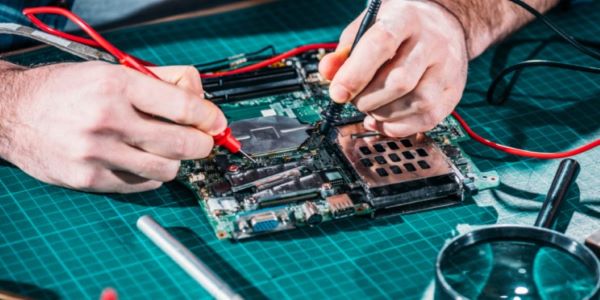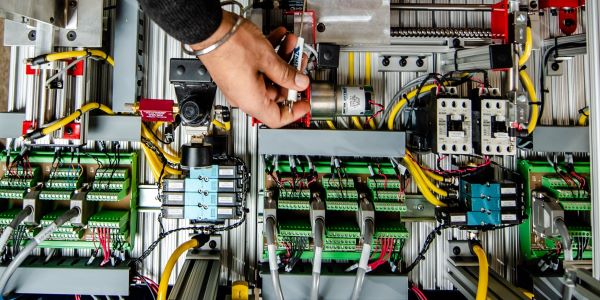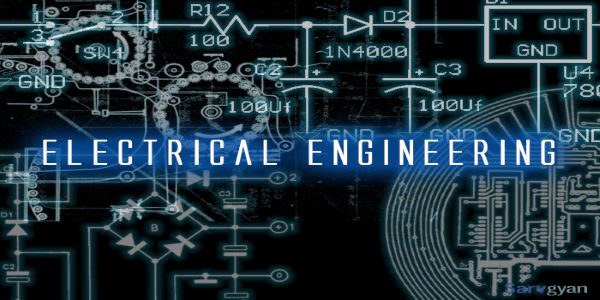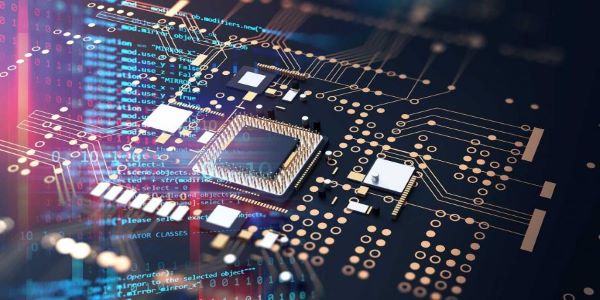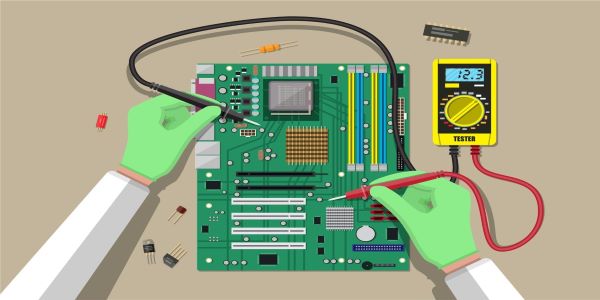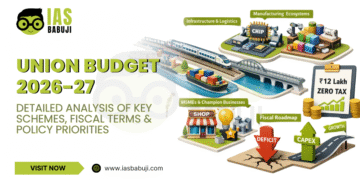UPSC offers many optional subjects. They are spread over many fields. Hence, anyone who is a pro in a field can opt for a similar optional subject. There are a total of 48 optional subjects. You write 9 main papers. They are around GS and Essay. Two of them are for your optional subject. Out of the 48 papers, we are going to talk about one of them. We will discuss the syllabus for the EE paper. That is UPSC/IAS Electrical Engineering Optional Paper Syllabus. We know that UPSC hosts many aspirants. They come from diff fields. However, the max number of aspirants are engineers. We do not say that there are only B.Tech graduates. The exam also has people from the medical sector. Some belong to the literary fields.
About B.Tech
Quite a few aspirants are unhappy about their current jobs. Be it a govt or private job, the lust for IAS is strong in Indians. Hence, you will find all types of students writing the exam. But there is one special aspect of the exam. The exam is mostly topped by engineers. It is a very repetitive phenomenon. Hence, the exam attracts many budding engineers. We know that the B.Tech degree has several branches. One can select any one branch.
Further, B.Tech students specialize in their branch. Some common B. Tech branches are civil, mechanical, and electrical. However, these are not the only three. There are many others. If you are a core branch student, you can opt for a similar optional subject. There is a total of 3 subjects for B.Tech students in UPSC. They are listed below.
- Civil
- Mechanical
- Electrical
These are the options for B.Tech students. If you are someone who belongs to these branches in your degree, opt for these optional subjects. However, if you have low interest in the Er subjects, you can select any other subjects. Other subjects are around GK and literature. It is our advice to go for a technical subject. If you have learned the subject for 4 years, it is better to continue with it. This will add brownie points to your prep. Hence, you can excel in your special field. But exploring other subjects is also welcomed. However, this is time-consuming. Thus, if you are short of time in hand, do not think much and dive into your core subject.
UPSC Electrical Engineering Optional Paper One Syllabus
You need to first read the syllabus to analyze the subject. And then you can decide the suitability of the same for your exams. Let us now talk about the UPSC/IAS Electrical Engineering Syllabus in detail. Like all other subjects in UPSC optional, you will write two papers for EE as well. Each one for 250 marks, hence the total of 500.
Let us start with Optional Paper One Syllabus for EE. The first major topic is about Circuits. This is a theory topic. It talks about the components of circuits. Moreover, you will also read about KCL, KVL, Nodal analysis, Mesh analysis, Two-port networks, etc. The second topic in the paper is Signals and Systems. Here you will read about LTI systems. You will also study convolution, Z-transform, Laplace transform, etc. E.M. Theory is the third topic in the UPSC/IAS Electrical Engineering Syllabus for paper one. This topic talks about Maxwell’s eq, Boundary conditions, and transmission lines. You will also read about the reflection and refraction of plane waves here.
Other Paper One Topics
Further, let us talks about the fourth topic. The fourth topic of UPSC electrical engineering optional paper one is analog electronics. It talks about BJT, JFET, Diode circuits, amplifiers, etc. You will also read about OPAMP circuits, filters, oscillators, switching power supplies, etc. The fifth topic is digital electronics. This one talks about boolean algebra, logic gates, combination circuits, etc. You will also read about sequential circuits and similar topics. The next topic is energy conversion. In this, you will read about electromechanical energy conversion. Secondly, you will read about transformers and 3-phase induction machines. You will also read about synchronous machines.
Let us now talk about the last two topics of the paper. They are an imp part of the UPSC Electrical Engineering Optional Paper One Syllabus. The 7th topic is about power electronics. It also covers electric drives. This topic talks about semiconductor power devices. It also talks about bridge converters. The 8th topic is detailed. It covers random variables, signals, and noise. Further, it talks about Linear CW modulation. You will also study frequency modulation. Finally, you will read about the CW Modulation system in this paper. Here we cover all the topics under paper one for EE optional subject. Read about EE optional in UPSC here: click now.
UPSC Electrical Engineering Optional Paper Two Syllabus
Now, let us talk about the syllabus for the second paper. It is imp to list the topics to study from the UPSC Electrical Engineering Syllabus. This will help you in quick revision later. The syllabus for paper one is quite wide. Hence, you will have to give more time to your paper one prep. On the other hand, the second paper has a limited syllabus. We have only 5 major topics or chapters in this paper. The first topic is about control systems. In this, you will read about the elements of control systems. You will also read about open and closed loops. You will also cover LTI systems and stability topics. This was about the first chapter. Now let us move ahead to the second chapter. The second chapter talks about microprocessors. It also covers microcomputers.
You will read about PC organization, CPU, and instruction set. Further, you will learn settiming diagrams, memory interfacing, etc. The third chapter is about measurement and instruction. In this chapter, you will learn about error analysis. Then, you will read about power, energy, power factor, inductance, etc. The fourth topic talks about power systems: analysis and control. This one talks about bus admittance, static VAR system, symmetrical concepts, etc. You will also read about matrices, load flow, voltage control, and other similar topics. Now let us talk about the 5th topic in UPSC Electrical engineering optional paper two syllabi. This 5th chap talks about power system protection. In this chapter, you will come across principles of overcurrent.
Other topics, success rate, and toppers in EE
You will read about differential and distance protection. Further, you will see the concept of solid-state relays and circuit breakers. You will also study computer-aided protection, line, bus generator, etc. The 6th topic talks about digital comm. It includes PCM, DPCM, DM, ASK, PSK, FSK concepts, etc. In this way, we have covered the syllabus for both papers. Let us now look at the success rate of this subject in UPSC. In 2017, 193 candidates appeared for the exam. However, only 19 were cleared. Hence, the success rate in this year was 9.8%. In 2015, 143 people appeared. However, only 13 were cleared. Hence, the success rate is 9.1%. In 2013, this rate was 11.5%.
Let us look at toppers who cracked UPSC with EE optional. IN 2017, Rishi Raj secured the 27th rank and Rushikesh Reddy secured the 374th rank with EE. Rahul Gupta secured the 20th rank in 2016. Surabhi Gautam opted for EE and grabbed the 50th rank in UPSC. Hence, we saw that even with a technical subject, you can easily crack the exam. One has to properly read the syllabus. Analyze the paper one and paper two topics. Get your notes in hand and start preparing. Mark the imp topics and create your notes. Make sure you go through the previous year’s question papers. To read about other optional papers: click here.
FAQs
Each optional paper carries 250 marks. The questions may carry 10 marks each or 15 marks each. Paper one is of 250 marks and paper two also carries the same marks. Hence, the EE optional subject carries a total of 500 marks in the UPSC CSE mains exam.
The subject is very technical in nature. It is easier for someone with an engineering history to learn the concepts. They have a better knowledge about these topics from their college. However, if you do not have any history in engineering, the subject will get heavy and too technical for you. Moreover, you may just rot learn and skip the understanding part. Hence, we highly do not recommend nonengineering students to opt for this subject.
It will take 3 to 4 months to cover your syllabus completely. You must revise your optional paper before the exam in advance.
Editor’s Note | UPSC Electrical Engineering Syllabus
Here we will conclude our article. In today’s article, we talked about UPSC/IAS Electrical Engineering Optional Syllabus. We talked about the paper one and paper two syllabus. Moreover, we spoke about the success rate and topppers of the EE subject. Hence, we tried to cover the syllabus in detail fo your UPSC prep. You cannot kickstart your studies without reading the syllabus. Always list the topics which need to be focused on first.

